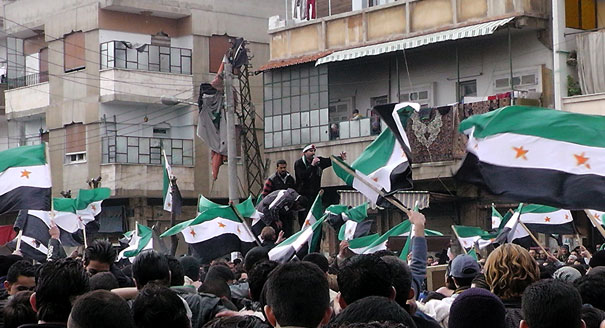The bedrock of NATO is Article 5. If a member of NATO is threatened or attacked, NATO countries are obliged to come to the assistance of that country.
Over the past several weeks, Turkey has been shelled from Syria and has retaliated by shelling Syrian targets. Yet, Turkey has not requested an Article 5, nor has NATO made contingency plans for Turkey.
Turkey is the only Muslim country in the Alliance, it also has immense strategic importance for the region. So, it is all the more surprising that NATO has not been considering its options given how the conflict is affecting Turkey, which is already host to over 100,000 Syrian refugees.
Indeed, it is hard to imagine NATO adopting the same stance if the Baltic States or Poland were threatened by Russia or Belarus.
Turkey has its own reasons for not requesting an Article 5. Turkey wants to keep NATO at arm’s length because of the Kurdish issue in Turkey, Syria, and Iraq.
The Assad regime has withdrawn from most of the Kurdish areas in Syria. This scares Ankara. The Kurdish forces in Syria are supported by the PKK, (the Kurdistan Workers’ Party) that is branded as a terrorist organization by the United States and Turkey.
Turkey’s Prime Minister, Recep Tayyip Erdoğan is now confronted with the war in Syria, the Kurds in Syria, and the Kurds in Turkey, where violence has escalated in recent months. The idea of an autonomous or independent Kurdish state emerging from the Syrian war is anathema to Erdoğan.
No wonder then that Erdoğan is reluctant to ask for NATO assistance: it would limit his options over how he wants to deal with the Kurdish issue. Unwittingly, Turkey is letting NATO off the hook.
In that sense, this makes it easier for NATO to justify why it is standing on the sidelines. It is not going to invoke an Article 5 because neither the United States, for domestic political reasons, nor Turkey would support it.
Yet, NATO’s stance towards Syria is not determined by Turkey alone.
NATO, for example, could consider imposing a no-fly zone over Syria. But that would require a legal cover from the United Nations Security Council. There, Russia and China would veto it, as it has vetoed so many other UN resolutions on Syria.
One main reason for Russia’s obduracy at the Security Council is the way NATO over stretched its mandate nearly eighteen months ago in Libya.
NATO’s mandate that was anchored on the “responsibility to protect” became so elastic that NATO bombed Gaddafi targets but also ports and highways. Russia was furious with the interpretation of the mandate. In that sense, the Libya mission has made it more difficult for NATO and the UN Security Council to persuade Russia to support any kind of intervention.
NATO cites another reason for not intervening in Syria. Anders Fogh Rasmussen, the Alliance’s secretary general, has repeatedly said that Syria is more complicated than Libya in terms of its ethnic and religious composition. (As if Libya was not made up of a plethora of competing tribal groups and regional loyalties that are to this day being played out.)
Yet in this case, NATO’s justification for non-action has become a self-fulfilling prophecy.
The war has radicalized both sides. It has radicalized the Alawites — Assad’s own ethnic background — who clearly fear for their lives once the war is over. It has radicalized the Sunnis, who have been discriminated against under the Assad regime, and it has become a fertile ground for Jihadists and other fundamentalists groups who are exploiting and adding to the violence.
And because the war has become a self-fulfilling prophecy, the conflict is making the region very, very unstable. Last Friday's blast in the heart of Beirut's Christian area that killed eight people, including the country's intelligence chief, Brig.Gen. Wissam al-Hassan, was a reminder of just how volatile and dangerous the region is becoming.
Just over a year ago, Rasmussen delivered a major speech in Berlin. He spoke convincingly about NATO’s “responsibility to protect.”
Rasmussen now rarely refers to that obligation. Yet surely, despite all the reasons for justifying no intervention of any kind in Syria, it is time for NATO to stop sitting on the sidelines. Whatever the outcome of the conflict and the damage it will have on the region, the United States and Europe will not be spared the consequences.






